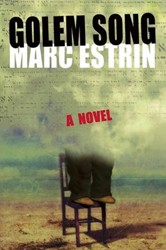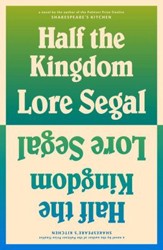Yiddish played a small but magical role in my childhood as a language spoken by my grandparents. Grabbing on to Yiddish was like — to borrow a metaphor from Boris Sandler’s character Bella — holding on to a handful of sand that drained out from between your fingers leaving only a memory of its mass and heft.
As Mikhail Krutikov explains in the foreword to Red Shoes for Rachel, Sandler has long been a champion of modern Yiddish, publishing stories in Yiddish since the 1990s, founding a Yiddish magazine for children, teaching Yiddish at Hebrew University, and serving as editor-in-chief of the Yiddish Foreword.
In this book, Sandler brings together three novellas originally written in Yiddish and beautifully translated by Barnett Zumoff. In the first, Sarah, a survivor of the Nazi invasion of Bessarabia and the harrowing experiences of deportation and the Pechora concentration camp, is nearing the end of her life. She has immigrated to Israel, but her adjustment to the land is difficult. The second novella is a love story between Rachel and Yascha, whose parents endured the same wartime horrors as Sarah. While Rachel grew up in Brooklyn, Yascha’s family returned to a corner of the Soviet Union where Yiddish was still spoken. The future lovers come to their relationship carrying the baggage not just of their own past, but that of their parents as well. In the final novella, Bella, a Russian immigrant, is preparing for her thirtieth wedding anniversary while her husband Mark is questioning whether or not the marriage has the capacity to survive. In the end, it’s a joke, of the type that’s funny because of its truth, that brings them peace.
The three novellas all feature characters who struggle with loss and longing, past and present, memory and its consequences. They tell the stories of people whose roots have been cut and who struggle to find a foothold. Shared themes emerge. The notion of fate or destiny runs through the stories. Hiding places or alcoves represent places where characters confront their pain.
But what’s most compelling is Sandler’s unique turn of phrase that sets up a poetic tension between what is and what might have been. In a moment of recollection about her father, Rachel “wanted to ask him something about that, but something held her back till it was entirely forgotten, or, more accurately, moved back to a distant corner of her memory like many other questions that remained lying there, silently dying away without answer.” Yascha, asleep on Rachel’s couch, “felt the touch of her gaze on his eyelashes, or so he imagined.” And Bella, after recalling a moment of indiscretion, “tucked it away in the secret corners of her soul, such as every woman has.” With such prose, Sandler and his translator have gifted the English reader with a sense of that elusive mass and heft of Yiddish. Red Shoes for Rachel proves that Yiddish isn’t a dead language after all, but one that still teems with mystery and life — just as I always suspected.





